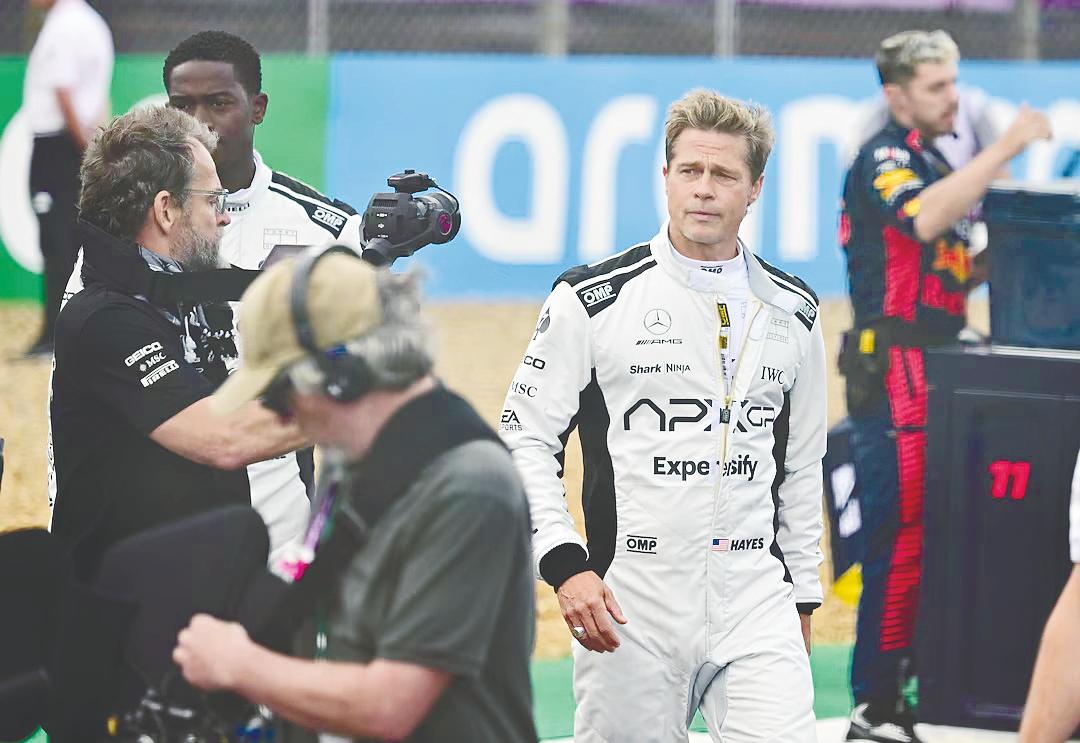LET us be clear – Cinema at its commercial core is just a movie. It is fiction born from imagination, designed to make profits soar. This remains the fundamental reality of movies made for the masses.
Yet, as someone inclined towards the literary, I find myself compelled to look past the spectacle, to delve into the lessons and messages directors weave into their narratives.
Films exist on a spectrum – some captivate utterly, holding you immersed to your seat while others provoke only cringing regret for the precious time squandered.
Brad Pitt’s F1, released recently, firmly belongs to the former category. This is noteworthy, especially as I am not typically a devotee of racing films. At its heart, F1 is a sports drama but its true engine lies in the life lessons complicatedly spread through its narrative and characters.
Central to this is Sonny Hayes, the veteran racer portrayed by Pitt and his journey with the fictional, struggling team.
Hayes enters the scene as a figure viewed by the racing fraternity as weathered and withered. He arrives armed with little more than raw guts and immense, perhaps defiant, confidence. His drive, however, stems from a shadowy past that relentlessly haunts him.
Before exploring the substance I took from the film, my standard disclaimer applies, that this is not a conventional movie review. It is my personal reception, focusing on the resonant themes I carried home from the movie.
F1 conveys several potent life lessons. Foremost among them is the imperative of pursuing passion over fame or money. The film persistently circles a fundamental, often uncomfortable, question: If not for money, then what?
Wisely, it leaves this query ambiguous, offering no single answer, thereby inviting each viewer to respond based on their own philosophy of life.
The narrative emphatically argues that lasting fulfilment springs not from chasing external rewards but rather from dedicating oneself to what truly ignites the soul.
Hayes embodies this principle. A retired driver returning after a staggering thirty-year absence, he races not for renewed glory but to rediscover his purpose and lift his beleaguered team.
This core message resonates widely. Social media posts highlight it, with one user noting: “It’s about chasing what sets your soul on fire. Follow the passion and happiness; peace and purpose will follow you.”
Another review reminds us of the practical truth: “You’re not going to last in any profession if you are in it only for the fame and money.”
Do I agree? Absolutely! This lesson is compelling and aligns with real-world wisdom. Passion-driven pursuits often unlock
a deeper, more enduring satisfaction than the pursuit of fleeting rewards, though the
film’s characteristic Hollywood gloss inevitably simplifies the tangible,
daily struggles inherent in making such
a choice.
Closely intertwined is the theme of second chances and resilience. Hayes’ comeback is monumental, occurring decades after a near-fatal crash decades ago. His return to the track at 61 (which is Pitt’s real age) despite his advanced years for a racer and the weight of past trauma, powerfully illustrates that it is never too late to reclaim your path.
The broader narrative of the underdog team battling against overwhelming odds reinforces this message of perseverance.
As one review aptly summarised, the film tackles “second chances, ego, legacy and teamwork”. The underlying idea that setbacks do not define us and that resilience paves the road to redemption, is undeniably universal and deeply felt.
The film also meticulously integrates the indispensable lesson that ”teamwork makes the dream work”. A pivotal scene features Hayes delivering a rousing speech, emphasising how every crew member’s seemingly minor contribution like shaving half a second off a pit stop, for instance, is the crucial difference between a last-place team and a winner.
This powerfully champions the value of collective effort over individual heroics. Hayes evolves, mentoring the raw rookie Joshua Pearce, played by Damson Idris and collaborating with the entire crew to defy expectations.
This focus on collaboration is a strong lesson that will resonate with each of us in different ways, particularly relevant in high-stakes environments like elite sports or businesses.
Given the film’s grounding in real F1 dynamics, the emphasis on teamwork feels genuine, even if some purists argue the depicted racing strategies venture into “dangerous” and unrealistic territory.
Learning from mistakes is another key thread, though perhaps not explored in exhaustive depth. Pitt himself, reflecting on the film’s themes, stated in an interview: “No matter the mistake, you learn from it and move on, and it’ll lead to the next success.”
This philosophy manifests on screen. Hayes’ instinctive, sometimes unorthodox strategies like switching tyres against the team’s explicit plan, occasionally do backfire. However, these moments ultimately become catalysts for teaching the team adaptability and the value of trusting seasoned intuition.
The recognition that mistakes are inevitable and should be viewed as essential stepping stones rather than catastrophic failures is a powerful and necessary mindset.
A more nuanced, almost abstract lesson emerges around finding peace within chaos, which was my personal favourite. Hayes speaks of discovering a profound “peacefulness in the car” amidst the sensory overload of racing and the tumult of his personal life.
This concept reaches its visual peak during the climactic final race, where Hayes becomes the star, pushing himself and his machine
to the absolute limit.
It is a compelling image, yet understanding the “peace” he describes while operating at such an extreme intensity remains challenging. This notion intriguingly reflects Pitt’s own comments about finding refuge from relentless tabloid scrutiny while immersed in filming F1.
The film suggests that the act of passionately pursuing what you love can itself become a sanctuary, offering solace even when the external world feels overwhelming.
Finally, the film explores mentorship and passing the torch. The dynamics between Hayes and Pearce evolves significantly, shifting from initial rivalry towards meaningful mentorship. This transition highlights the critical importance of guiding and investing in the next generation. Movies are a mirror of life, reflecting our dreams, struggles and truths in a frame of fiction.
Dr Bhavani Krishna Iyer holds a doctorate in English literature. Her professional background encompasses teaching, journalism and public relations. She is currently pursuing a
second master’s degree in counselling. Comments: letters@thesundaily.com










